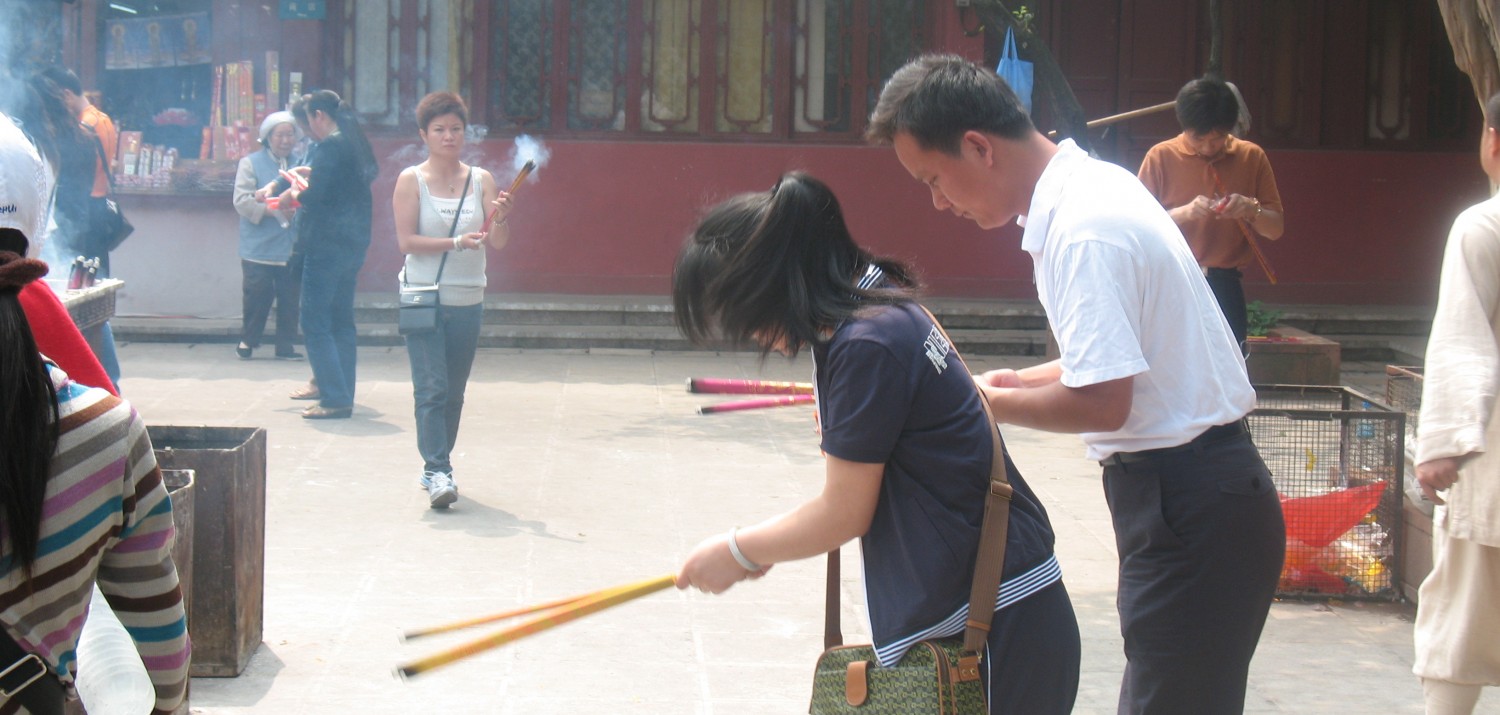Ethnographic approaches have generally seemed tangential to the study of Buddhism as whole. There have been a number of different reasons for this. Buddhist Studies in particular emerged from Orientalist and Philological disciplines which were less concerned with the lives of Buddhists and more with the philosophical and/or theological accounts which it was assumed shaped the worlds of Buddhists. In some ways, this textual orientation to Buddhism helped to compensate for the intense diversity of the Buddhist world. Because Buddhism has spanned Asia (and beyond), with different monastic traditions and institutions, different textual forms and relations between lay and monastic groups, a textual orientation helped constitute a coherent subject that ethnographic focus on the local might obscure. Finally, the politics of the Cold War and the post-Cold War worlds made ethnographic research difficult if not impossible in large swaths of the Buddhist world (including China, Tibet, Myanmar, Vietnam, Cambodia). For these and other reasons, for much of its history Buddhist Studies has been focused on the religion of Buddhists, rather than the role of religion in the lives of Buddhists.
Over the last fifteen years, ethnographic studies of Buddhism have emerged as an increasingly common and important method of investigating Buddhism in contemporary Asia. This has been a disparate movement, growing out of different disciplines (Anthropology, Buddhist Studies, Sociology, Religious Studies, Area Studies, Political Science, Human Development), focused on different types of Buddhism (Theravada, Mahayana, Vajrayana), and different types of Buddhist populations (monastic, lay and ritual specialists). In recent years, there have panels at conferences (American Academy of Religion 2011; International Association of Buddhist Studies 2014) and workshops (University of Toronto-Numata Conference “Anthropology of Buddhism” 2015) that have begun to recognize that there is a shift within the way that scholars approach Buddhism. However, these discussions have yet to articulate why a disciplined, ethnographic study of Buddhism is necessary. In other words, the panels and workshops have not yet answered the questions of what ethnographic approaches to the study of Buddhism do that other methods do not and cannot; how ethnography challenges what we understand “Buddhism” is; and how ethnographic methods should be seen in relation to other ways to study Buddhism.
In addressing these questions, we are inviting papers on a variety of topics from around the Buddhist world, including, but not limited to:
- Buddhist actors: how does ethnography condition the definition of actors as Buddhist? How does gender affect ethnography in Buddhist communities? What does ethnography open up and close off in understanding a subject as Buddhist?
- Location and Scale: The study of Buddhism has tended to focus on the monastery or the nunnery as the location of Buddhism. How does the ethnographic encounter affect this understanding? What other Buddhist locations become visible in the ethnographic encounter? Similarly, if the lineage or national forms of Buddhism have been the primary scale by which Buddhists have been studied, do ethnographic approaches to Buddhism adjust the scale by which we see the Buddhist world?
- Buddhist knowledge: Translocal Buddhist knowledge has been a central focus of Buddhist studies. What are the ways that ethnographic endeavors change how we understand this knowledge? How is knowledge not just transferred, but used in different Buddhist contexts.
SUBMISSION OF PROPOSALS
“Buddhism, Humanities and Ethnographic Methods,” will take place at the University of Vermont on April 29-30, 2016. Scholars interested in submitting a proposal to the conference should submit a title, an abstract of 250 words and bio of 100 words by November 15 via email to thomas.borchert@uvm.edu. Notification will occur by December 15.
Authors of accepted proposals should submit a completed draft of their papers (approximately 5000 words) by April 5, 2016
We encourage scholars of various disciplines and of the entire Buddhist world to submit proposals. Women and minority scholars are particularly encouraged to apply.
The conference is being funded in part by the Humanities Center of the University of Vermont. Conference participants will be responsible for transportation to and from Burlington, Vermont, but board and lodging in Burlington will be provided for the duration of the conference.
If there are any questions, please contact Thomas Borchert of the University of Vermont (thomas.borchert@uvm.edu) or Jeffrey Samuels of Western Kentucky University (Jeffrey.samuels@wku.edu).
